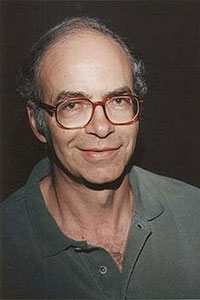On Dec 29 last year, Hasan Gokal, the medical director of the Covid-19 response team in Harris County, Texas (which includes Houston, the fourth-largest city in the United States by population), was supervising the administration of the Moderna vaccine, mostly to emergency workers. The vaccine comes in vials containing 11 doses. A vial, once opened, expires in six hours and unused vaccine must then be thrown away.
On that day, a patient arrived just before closing time, so a nurse had to open a new vial, leaving Dr Gokal with 10 doses. He offered them to the health-care workers and to two police officers still on the site, but they had either been vaccinated, or declined. He called a colleague whose parents and in-laws were eligible -- anyone over 65 or with a medical condition that increases the risk from the virus could then be vaccinated -- but they weren't available.
Dr Gokal started calling people from his phone's contacts to ask if they knew anyone eligible who wanted to be vaccinated and could come to his home that evening. When he arrived home, two people were waiting there, and he vaccinated them. Then he drove to homes where he knew there were eligible people, and vaccinated five more.
Meanwhile he kept calling, and three more agreed to come to his home. That would have exhausted the supply, but one cancelled. Dr Gokal's wife has pulmonary sarcoidosis, a lung condition that made her eligible to be vaccinated. "I didn't intend to give this to you," he said he told her, "but in a half-hour I'm going to have to dump this down the toilet." Fifteen minutes before the last dose would expire, he vaccinated her.
At work the next morning, Dr Gokal told his supervisor what had happened, and reported the names of those who had received 10 doses. A few days later, he was summoned by his supervisor, and told that he should have returned the remaining doses, even if they would then have expired and been thrown away. For failing to do so, he was dismissed.
Two weeks later, the Harris County district attorney, Kim Ogg, charged him with theft and with breaking county protocols. Dr Gokal's lawyer requested a copy of the protocols that his client was accused of breaking. He was told they did not exist.
A judge dismissed the charges, saying that the district attorney had failed to show that Dr Gokal, as the medical adviser for the county's Covid-19 response, did not have the right to decide whom to vaccinate. Ms Ogg has said that she will try again.
Some moral systems treat rules as inviolable. The Roman Catholic Church, for example, holds that to take an innocent human life is always wrong.
It sometimes happens that during childbirth, the baby's skull becomes lodged in the vagina, and all attempts to dislodge it fail. In this situation, if nothing is done, both the mother and the baby will die. Until the development of modern obstetrics, the only way to prevent that double tragedy was for a doctor to crush the baby's skull. The baby would die, but the woman would live. In Catholic countries, that procedure was prohibited because it was the direct killing of the baby. As a result, women who could have been saved died.
Utilitarianism takes the opposite view. Its founder, Jeremy Bentham, would ask of any law, custom, or moral rule, "What is the use of it?" By that, he meant, what does it do to increase happiness or reduce suffering? Bentham and his followers applied that test to a wide range of laws and institutions: the privileges of the aristocracy, the slave trade, restrictions on who could vote, victimless crimes such as homosexuality, and the subordinate status of women.
Rules have an important place, even for utilitarians. John Stuart Mill thought rules embodied the wisdom and experience of past generations about what kind of conduct is likely to bring about a better life for all. Nevertheless, for Mill, rules are not absolute. "To save a life," he wrote, "it may not only be allowable, but a duty, to steal."
We will never know if one of Dr Gokal's 10 injections saved a life, but they surely increased the peace of mind of those who might otherwise have had to wait days or weeks to be vaccinated. In any case, he did not steal. Obviously, using the doses to vaccinate people had better consequences than throwing them away -- or rather, it would have had better consequences, if Dr Gokal had not been dismissed from his job and threatened with prosecution.
One thing we can learn from the injustice done to Dr Gokal is the value of sensible rules to guide vaccination administrators. In Los Angeles, standby lines outside clinics, though unofficial, have been accepted by the Los Angeles County Department of Public Health, which has told health-care providers not to throw away unused doses. In Israel, people who would not normally be due to be vaccinated can register to receive a text message if a nearby vaccination centre has vaccines that would otherwise be wasted. As these examples show, it is not difficult to think of something better than throwing away potentially life-saving vaccines.
The other lesson to be learned is that it is wrong to punish people who do their best in the absence of clear rules, or in situations that fall outside the range of possibilities contemplated by those who drew up the rules. In these situations, people should be encouraged to exercise their own judgment to bring about the best consequences for all. ©2021 Project Syndicate
Peter Singer is Professor of Bioethics at Princeton University and founder of the non-profit organisation The Life You Can Save. His books include 'Animal Liberation', 'Practical Ethics', 'Ethics in the Real World', and 'Why Vegan?' In April, WW Norton will publish his new edition of Apuleius's 'The Golden Ass'.

